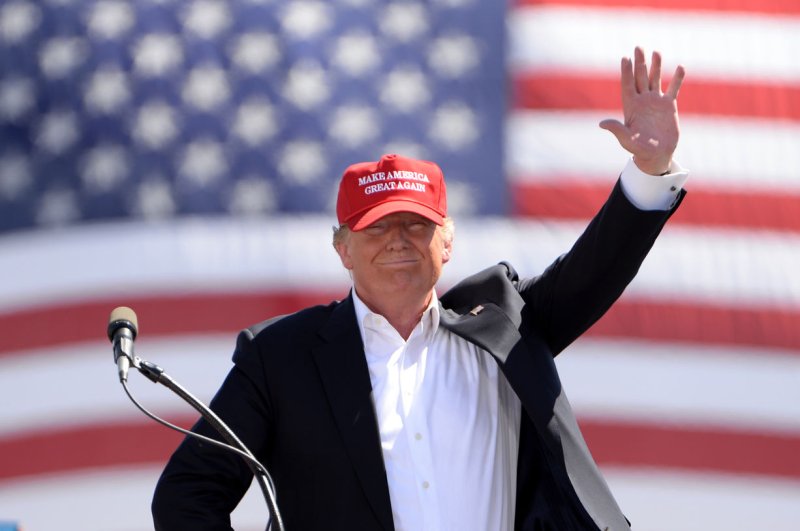Oil market analysts review comments made by Republican presidential candidate Donald Trump on the imports of oil from Saudi Arabia. Photo by Art Foxall/UPI |
License Photo
NEW YORK, March 28 (UPI) -- Cutting oil imports from Saudi Arabia would likely cause a temporary spike in U.S. gasoline prices, but harm bilateral ties long-term, market analysts said.
Asked last week by The New York Times if he'd cut imports of oil from Saudi Arabia if the government of Riyadh was unwilling to help lead a ground effort against the Islamic State terror group, Republican presidential contender Donald Trump issued an emphatic "yes."
"Oh yeah, sure," he said in the telephone interview. "I would do that."
Saudi Arabia is the No. 2 exporter of crude oil to the United States, behind Canada. Trump said the primary reason for U.S. involvement in the Middle East was because of oil. Without strategic ties to oil, the candidate said the future of Saudi Arabia would be in jeopardy.
"Without us, Saudi Arabia wouldn't exist for very long," he said.
U.S. President Jimmy Carter said during the Iran-Iraq war in the 1980s that U.S. strategic and energy interests intersected in the region. Carter said the United States and its allies would do "whatever is required" to keep the vital Strait of Hormuz open to allow oil shipments to reach the West despite the conflict.
"One of the reasons we're a debtor nation [is that] we spend so much on the military," Trump said. "But the military isn't for us. The military is to be policeman for other countries."
Trump's comments were reviewed by analysts working in the energy sector. Patrick DeHaan, a senior petroleum analyst at retail market watchdog GasBuddy, said that, without Saudi oil, U.S. oil companies would either need to increase production by as much as 36 million barrels per month to make up the difference, or find another supplier.
"To brute-force interrupt the delicate balance of oil supply and demand is one that shows a disconnect with reality and could have a major impact on gas prices," he said in response to emailed questions.
Jamie Webster, an independent market analyst and former research director at IHS Energy, agreed, saying gas prices would likely increase in the United States, though the net impact on crude oil prices would be relatively muted.
"Trumps actions would also imperil a long-standing, though difficult relationship between the United States and Saudi Arabia," he told UPI. "This would likely cause Saudi Arabia to believe he intended to develop a tie with Iran."
Data from the U.S. Energy Information Administration show imports of crude oil from Saudi Arabia are fluid, but on a general decline. In six of the years since 2005, the United States has recorded declines in Saudi oil imports, and the year-on-year volumetric increases were far overshadowed by decreases.
In terms of retail gasoline prices, lower overall crude oil prices have resulted in a de facto stimulus for U.S. consumers. As of Monday, the average national retail price for a gallon of regular unleaded of $2.03 is 16 percent lower than one year ago and roughly 50 percent below peak levels from 2008, roughly the onset of the U.S. shale oil boom.















